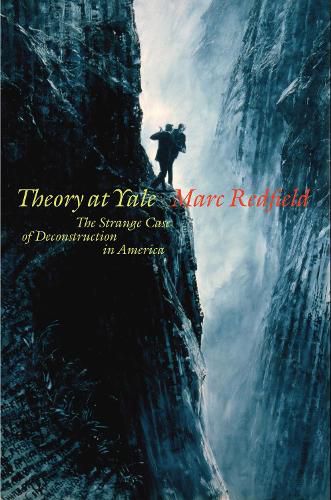Readings Newsletter
Become a Readings Member to make your shopping experience even easier.
Sign in or sign up for free!
You’re not far away from qualifying for FREE standard shipping within Australia
You’ve qualified for FREE standard shipping within Australia
The cart is loading…






This book examines the affinity between theory and deconstruction that developed in the American academy in the 1970s by way of the Yale Critics : Harold Bloom, Paul de Man, Geoffrey Hartman, and J. Hillis Miller, sometimes joined by the French philosopher Jacques Derrida.
With this semi-fictional collective, theory became a media event, first in the academy and then in the wider print media, in and through its phantasmatic link with deconstruction and with Yale. The important role played by aesthetic humanism in American pedagogical discourse provides a context for understanding theory as an aesthetic scandal, and an examination of the ways in which de Man’s work challenges aesthetic pieties helps us understand why, by the 1980s, he above all had come to personify theory.
Combining a broad account of the Yale Critics phenomenon with a series of careful reexaminations of the event of theory, Redfield traces the threat posed by language’s unreliability and inhumanity in chapters on lyric, on Hartman’s representation of the Wordsworthian imagination, on Bloom’s early theory of influence in the 1970s together with his later media reinvention as the genius of the Western Canon, and on John Guillory’s influential attempt to interpret de Manian theory as a symptom of literature’s increasing marginality. A final chapter examines Mark Tansey’s paintings Derrida Queries de Man and Constructing the Grand Canyon, paintings that offer subtle, complex reflections on the peculiar event of theory-as-deconstruction in America.
$9.00 standard shipping within Australia
FREE standard shipping within Australia for orders over $100.00
Express & International shipping calculated at checkout
This book examines the affinity between theory and deconstruction that developed in the American academy in the 1970s by way of the Yale Critics : Harold Bloom, Paul de Man, Geoffrey Hartman, and J. Hillis Miller, sometimes joined by the French philosopher Jacques Derrida.
With this semi-fictional collective, theory became a media event, first in the academy and then in the wider print media, in and through its phantasmatic link with deconstruction and with Yale. The important role played by aesthetic humanism in American pedagogical discourse provides a context for understanding theory as an aesthetic scandal, and an examination of the ways in which de Man’s work challenges aesthetic pieties helps us understand why, by the 1980s, he above all had come to personify theory.
Combining a broad account of the Yale Critics phenomenon with a series of careful reexaminations of the event of theory, Redfield traces the threat posed by language’s unreliability and inhumanity in chapters on lyric, on Hartman’s representation of the Wordsworthian imagination, on Bloom’s early theory of influence in the 1970s together with his later media reinvention as the genius of the Western Canon, and on John Guillory’s influential attempt to interpret de Manian theory as a symptom of literature’s increasing marginality. A final chapter examines Mark Tansey’s paintings Derrida Queries de Man and Constructing the Grand Canyon, paintings that offer subtle, complex reflections on the peculiar event of theory-as-deconstruction in America.